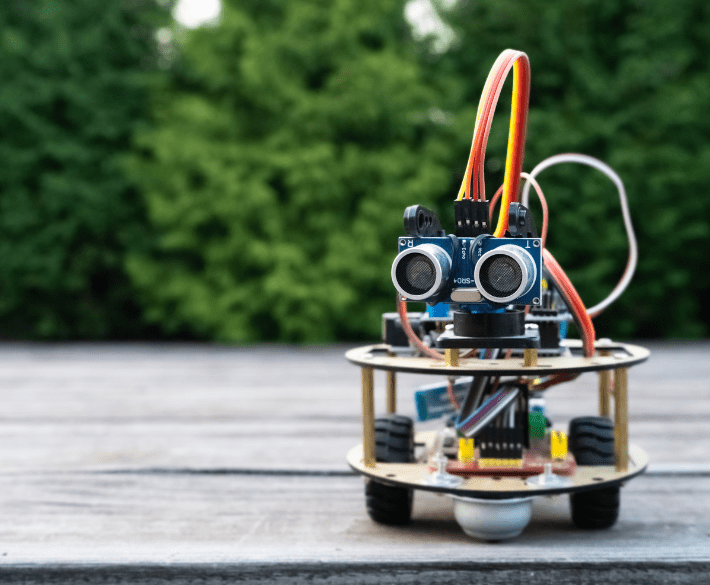
How to Develop and Manage Robotics Projects Effectively
Robotics projects are complex endeavors that require careful planning, execution, and management to achieve successful outcomes. Whether you are an experienced engineer or a novice hobbyist, mastering the art of developing and managing robotics projects is crucial for reaching your goals. In this article, we will explore some valuable tips and strategies to help you navigate the challenges of robotics project development and management effectively.
1. Define Your Project Goals and Scope
Before diving into a robotics project, it is essential to clearly define your goals and scope. What do you aim to achieve with your project? What are the specific tasks and functionalities your robot should perform? By establishing clear goals and scope, you will have a roadmap to guide your project development and ensure that you stay focused on your objectives.
2. Create a Detailed Project Plan
Once you have defined your project goals and scope, it is time to create a detailed project plan. A project plan should outline the tasks, timeline, budget, and resources required to complete the project successfully. Break down the project into manageable milestones and set deadlines for each to keep your project on track.
3. Assemble the Right Team
No robotics project can succeed without a skilled and dedicated team. Assemble a team of experts with diverse backgrounds and expertise to cover all aspects of the project, from mechanical design to software development. Collaborate closely with your team members, communicate effectively, and delegate tasks appropriately to maximize efficiency and productivity.
4. Choose the Right Technologies and Tools
Choosing the right technologies and tools is crucial for the success of your robotics project. Whether you are working with sensors, actuators, microcontrollers, or programming languages, make sure to select the most suitable options for your project requirements. Stay updated on the latest advancements in robotics technology and leverage them to enhance the capabilities of your robot.
5. Test and Iterate Your Design
Testing and iterating your design is a fundamental part of the robotics project development process. Conduct thorough testing at each stage of the project to identify and address any issues or limitations. Collect feedback from your team members and stakeholders, update your design accordingly, and iterate until you achieve the desired performance and functionality.
6. Monitor Progress and Adapt to Changes
Continuous monitoring of the project progress is essential for identifying potential risks, delays, or deviations from the original plan. Keep track of key metrics, such as budget, timeline, and quality, and adjust your project management strategies as needed to mitigate challenges and ensure project success. Be flexible and adaptive in your approach to overcome obstacles and achieve your project goals.
7. Document Your Work
Documentation is often overlooked but plays a critical role in the success of robotics projects. Documenting your work, including design decisions, codebase, test results, and project updates, helps you track progress, share knowledge with your team members, and troubleshoot issues effectively. Create detailed documentation throughout the project lifecycle to facilitate future maintenance and improvements.
8. Seek Feedback and Learn from Experience
Seeking feedback from users, clients, and industry experts is invaluable for gaining insights into the strengths and weaknesses of your robotics project. Actively listen to feedback, analyze the data collected, and incorporate suggestions for improvements in future projects. Learn from your experiences, both successes and failures, to refine your skills and enhance your project management capabilities.
9. Stay Updated and Engage with the Robotics Community
The field of robotics is constantly evolving, with new technologies, techniques, and trends emerging rapidly. Stay updated on the latest developments in robotics by attending conferences, workshops, and webinars, reading research papers, and engaging with the robotics community online. Networking with fellow robotics enthusiasts and professionals can provide valuable insights, support, and opportunities for collaboration.
10. Celebrate Your Achievements and Share Your Knowledge
Finally, remember to celebrate your achievements and milestones along the way. Completing a robotics project is a significant accomplishment that demonstrates your skills, creativity, and determination. Share your knowledge and experiences with others in the robotics community, inspire aspiring roboticists, and contribute to the advancement of robotics technology through collaboration, mentorship, and knowledge sharing.
By following these tips and strategies, you can develop and manage robotics projects effectively, overcome challenges, and achieve success in your robotic endeavors. Embrace the journey of robotics project development with passion, curiosity, and a willingness to learn, and you will undoubtedly make a significant impact in the field of robotics.
Was this helpful?
0 / 0